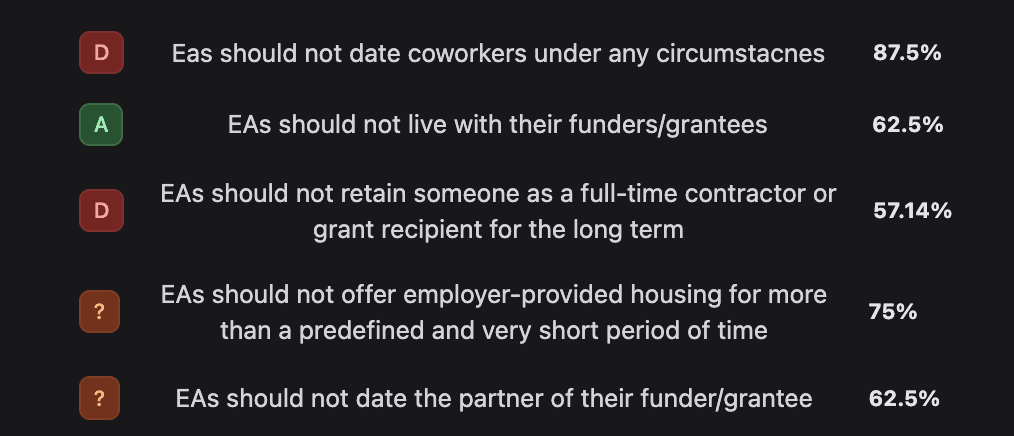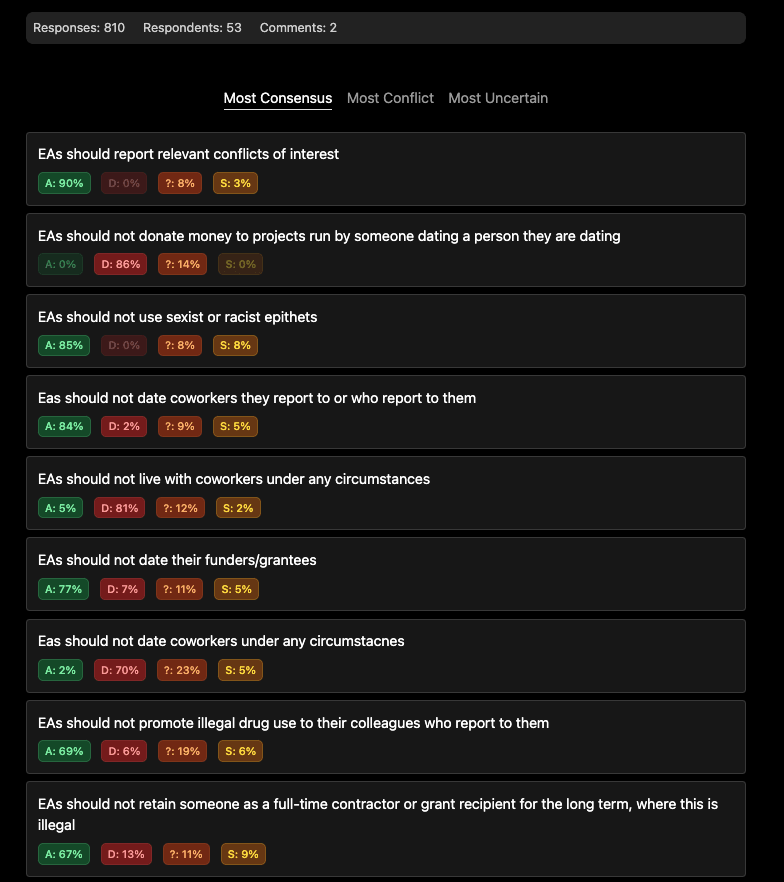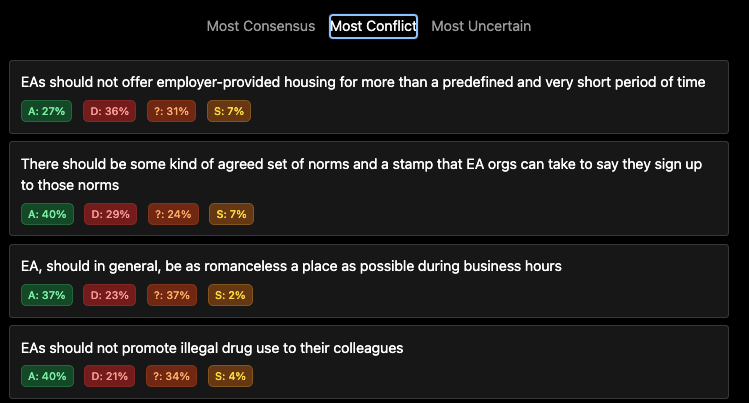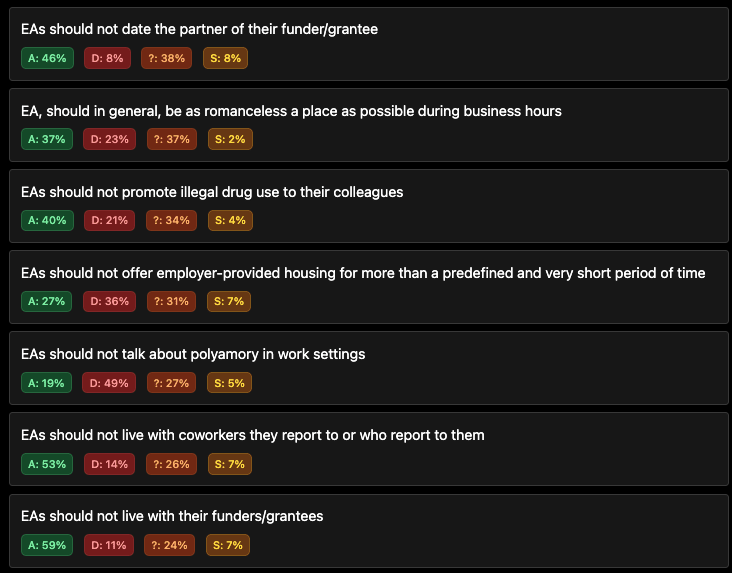There has already been ample discussion of what norms and taboos should exist in the EA community, especially over the past ten months. Below, I'm sharing an incomplete list of actions and dynamics I would strongly encourage EAs and EA organizations to either strictly avoid or treat as warranting a serious—and possibly ongoing—risk analysis.
I believe there is a reasonable risk should EAs:
- Live with coworkers, especially when there is a power differential and especially when there is a direct report relationship
- Date coworkers, especially when there is a power differential and especially when there is a direct report relationship
- Promote[1] drug use among coworkers, including legal drugs, and including alcohol and stimulants
- Live with their funders/grantees, especially when substantial conflict-of-interest mechanisms are not active
- Date their funders/grantees, especially when substantial conflict-of-interest mechanisms are not active
- Date the partner of their funder/grantee, especially when substantial conflict-of-interest mechanisms are not active
- Retain someone as a full-time contractor or grant recipient for the long term, especially when it might not adhere to legal guidelines
- Offer employer-provided housing for more than a predefined and very short period of time, thereby making an employee’s housing dependent on their continued employment and allowing an employer access to an employee’s personal living space
Potentially more controversial, two aspects of the community I believe have substantial downsides that the community has insufficiently discussed or addressed:
- EA™ Group Houses and the branding of private, personal spaces as “EA”
- "Work trials" that require interruption of regular employment to complete, such that those currently employed full-time must leave their existing job to be considered for a prospective job
As said, this list is far from complete and I imagine people may disagree with portions of it. I’m hoping to stake this as a position held by some EAs and I’m hoping this post can serve as a prompt for further discussion and assessment.
- ^
“Promote” is an ambiguous term here. I think this is true to life in that one person’s enthusiastic endorsement of a drug is another person’s peer pressure.





Thanks for your perspective on this!
Do you have an example of this? It is surprising to me that maintaining reasonable/standard professional norms could actually sink a company. (Among other things because at a small company, you have limited manpower, and so personnel time devoted to helping someone find housing is presumably coming out of time spent somewhere else—i.e., working on the time-sensitive project.)
I suspect we're just defining "professional" differently here (or thinking about really different professional contexts), but my experience is pretty strongly informed by having worked in an office pre-COVID, and seeing how profoundly professional culture has eroded, and how hard it has been to build any of that back. I think grad students/academics who have taught undergrads post-COVID have also been struck by this: it seems like norms within education quickly (and understandably!) became quite lax during COVID, but it's been quite difficult to reverse those changes (i.e., get students to turn stuff in on time, respond to emails, show up to mandatory events, etc). That said, I know that older people have always tended to think that the youth are a bunch of degenerates, so plausibly that's coloring our perception here, too.